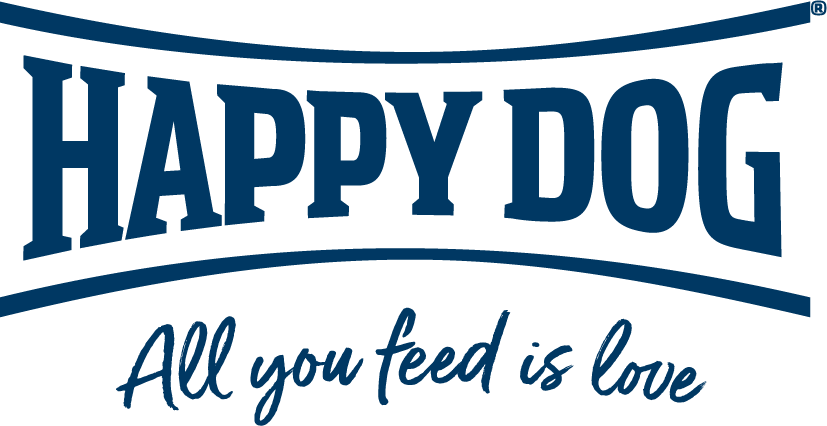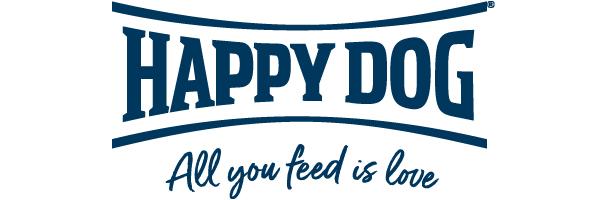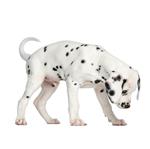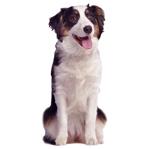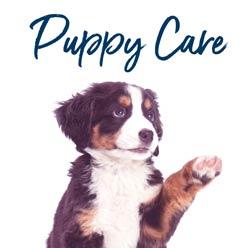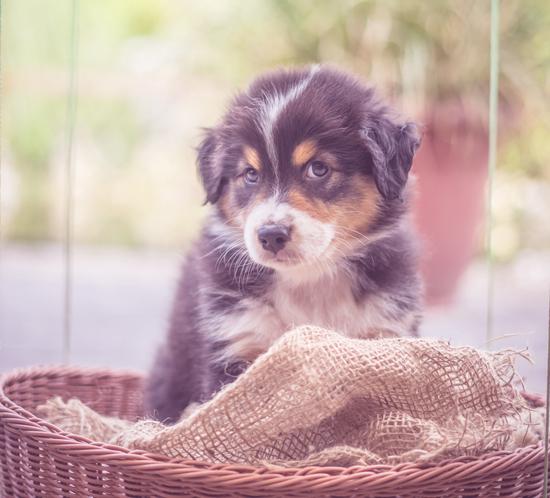O
h dear! Just when your dog’s stools were finally beginning to look like they should, it’s all started over again. Diarrhoea…when out walking we hear with envy how everyone else’s dogs have no problems at all in digesting their food. We really should get a ‘discount’ from the vet, the amount of times we’ve been in for treatment because of these digestive problems…it can't go on like this! But what can you do? Ultimately it’s also a worry, because it can’t be good for the dog to always have these problems! Hopefully it’s nothing serious… Digestive problems are a frequently occurring issue in dogs which are often coupled with unpleasant consequences. In order to find the root of the problem, you first have to know that such digestive issues can have a wide variety of causes. As well as diet problems, a range of organ problems affecting the stomach, bowels, liver or pancreas can also be the cause of digestive upset. The cause is often an infection by bacteria, viruses or parasites (e.g. worms or microorganisms). Allergies may also play a part and – although very rarely - poisoning. Of course, with so many possible causes, it's not always easy to find the culprit! Because of this, in the first instance the problem is treated with the usual cures and in general ‘normal’ diarrhoea then disappears quickly, - thank goodness! Complications arise when the problem is a frequently-recurring one and this is when the precise causes need to be determined.
The Right Food for Dogs with Sensitive Digestion
The first, most essential, question in such cases is that of feeding. A few essentials should be observed here: the more sensitive the digestive system, the more important it is to offer affected dogs especially high-quality and easily digestible dog food. Only the best raw ingredients and special production processes can ensure that the dog’s digestive organs are properly cared for. Particularly suitable products for sensitive dogs include easily-digestible kibbles (e.g.
Happy Dog Adult Medium,
Adult Maxi,
Adult Minior
Supreme New Zealand) or a complete food based on fine flakes (e.g.
Happy Dog Classic). Muesli-type foods are not so suitable for sensitive dogs. They can be slightly harder to digest and lay ‘heavy’ in the stomach. Some diarrhoea illnesses – especially with middle-aged animals – also respond very well to a lower protein and fat content, and a higher crude fibre content in the food (e.g.
Happy Dog Fit&Well Light). It’s advisable to feed in several small portions and soak the food with water warmed to approx. 50°C prior to feeding, thus reducing the strain on the organs. The information on feeding quantities given on the packs is only a purely theoretical guideline. The quantities of protein, fat or food your dog actually needs depends entirely on his individual constitution, his temperament and his metabolism. Problems can often quickly disappear if the quantity of food is reduced on a trial and error basis or even by substantially reducing snacks and treats. Once you have found a type of dog food which agrees with your dog, then you should not deviate from this food if at all possible. Should it be impossible to avoid, then a new food should be introduced very gradually, over at least 10 days.
Be Treatwise when You have a Sensitive Dog!
Treats and snacks are the most common cause of an incorrect diet! Many dog owners take great care to ensure the quality of the main meal, but completely forget that the in-between treats can often be the cause of the problems. Therefore, take care to ensure that the ingredients of any ‘doggy snacks’ are clearly shown. General collective terms such as ‘meat and animal derivatives’ or ‘cereal and vegetable derivatives’ often conceal inferior ingredients which are difficult to digest. ‘Colourings’ and ‘flavourings’ can also contribute to digestive problems. Simply do without these snacks for a short period and check whether the digestive problems occur during this time. If everything is alright, then try giving just one kind of snack. This way you can establish quickly and clearly which snacks agree with him and which ones don’t.
Are Your Dog's Digestive Problems a Case of Worms?
The next essential question is when did you last treat your dog for worms? And, which medication was used? Some common products are only suitable for treating certain types of worm, which means your dog is not completely free following treatment. Or if you dog is severely infested then a single treatment may not be fully effective. If diarrhoea recurs frequently, your dog’s faeces should be examined, you will need to take a sample to your vet. This means that the vet is not only able to get to grips with stubborn cases of worm infestation, but is also able to recognise whether there is any other parasites present in the gut.
Use Detective Work to Discover Why Your Dog Has Digestive Problems
If all the ‘usual’ causes have been excluded, but the problems persist or return, there is nothing for it but to look more deeply into other possible causes. There’s a whole range of tests that can be carried out by your vet to help to discover which organs are not functioning correctly. However, as there are so many different organs (from the digestive organs to the thyroid), which could be responsible for the problems, this will unfortunately be a complicated and – depending on the difficulty of the individual case – expensive process. Nevertheless, the consolation is that once the cause is known, ways and means can almost always be found of treating the ailment and reducing or curing the symptoms! And there are special diets for almost all chronic organ problems!
Extra Tips on Helping Your Dog with Digestive Problems
Here are some extra hints and tips to help you if your dog is experiencing digestive upset:
- If your dog is clearly not well and/or he is experiencing vomiting in addition to diarrhoea, your vet should be consulted immediately. Otherwise this could very quickly result in a serious loss of fluids, which could in turn lead to shock and later, death.
- If your dog seems alert and nothing obvious is wrong, and the digestive problem is not serious, then it is not always necessary to consult your vet immediately. Your dog should be made to fast for a day so that the stomach and bowels can rest. He should always have access to fresh drinking water. Following this, offer him an easily digestible diet which does not contain any substances which could irritate the mucous membrane. Ideal gentle foods are lean meat with boiled rice or potatoes. Care should be taken to ensure that excessive protein is not to prevent the bowels from being overtaxed, this diet must be offered several times a day in small portions.
- Once the diarrhoea has stopped and the stools look normal, the dog should be carefully returned to his ‘normal’ diet. Remember, the transition should be over a period of approx. 7-10 days – as with any change of food!
- In order to prevent relapses of serious and frequent problems it is advisable to give food as several smaller meals during the first weeks.
- If the diarrhoea returns during the transition back to the familiar food, then the suitability of this kind of food should be checked. (see section: The Right Food)
Please note: If diarrhoea occurs when you are halfway through a bag of food, it is very unlikely that the problems are linked to that food. If that were the case, the problems would have been there right from the start. Strict quality assurance, frequent quality control procedures and the strict regulations by the responsible authorities mean that it is practically impossible for production faults to be the cause of problems and for defective goods to reach the market. More detailed research usually reveals that the usual causes of difficulties lie in rapid changes to new foods, infectious diarrhoea or an inappropriate choice of food. You can always call us at Happy Dog for more help:
support@happydoguk.com | 01793 615 879 © C.C. Günther
